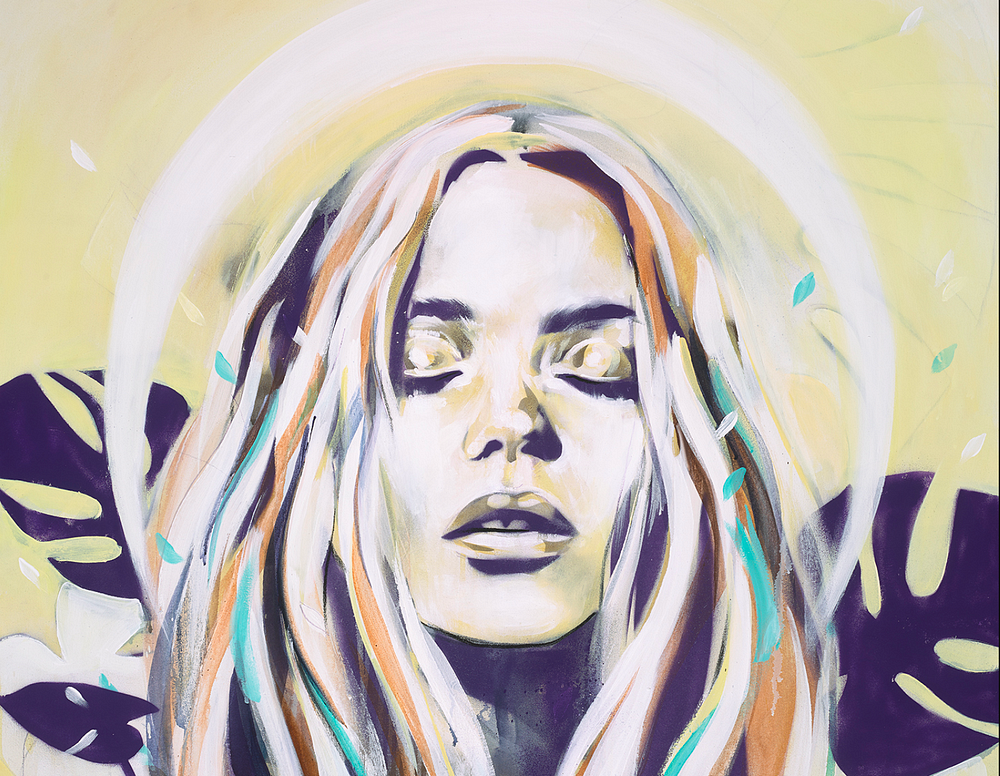I
wrestled with meditation for years, trying apps, in-person guided
practice, even monk-led retreats but was, at best, only reasonably good
at “making an attempt,” distracting myself with directives or only
finding a few fragile seconds of focus. I sat with meditation in the way
we visit relatives we don’t like: out of obligation, smiling to hide
our discomfort — as much from ourselves as them — each moment dragging
on (and us along with it.)
But, like a switch was flipped, meditation suddenly “worked” for me the instant I did it because I wanted to do, not because I felt like I should.
But I didn’t force or demand myself to want it.
I
asked myself “what makes you happy,” and when I had no confident answer
(instead distracting myself with side questions like, “what
is happiness,
even?”), I then asked “how do you feel?” My only answer, always, was
“fine.” So then I thought, “just for fun, pick the
closest feeling — or one you
sometimes feel! You can’t
always be fine!” Still unsure, on a whim I Googled
“feelings chart” — and not only do they exist, but they totally blew my mind.
Looking at them, I thought “these are feelings?!” I didn’t realize half these even existed, and didn’t realize things I was feeling
were the feelings they said on this chart (like I was surprised at how
little “fear” I felt, that what registered as “happiness” for me was
actually “peace” or “power,” that most everything under “happy” I only
experienced in fleeting blibs, and that sarcasm and distance are
“anger.”) That’s how out of tune I was.
After
that, I read that negative feelings (anything besides happy, joy,
power, peace, love) means we’re “neglecting our needs.” I read that and
was like “wait, what ‘needs?’ where?” and went hunting for a “needs
chart.” And that’s where things got dicey, because I stared at the list
and felt dumbfounded, like: “but… I have all this.”
Except clearly I didn’t.
And that is how we get lost.
I
searched on and found some compassionate souls who offered:“if you
can’t get in touch with your feelings, get in touch with your breath.”
Great, I thought. Meditation.
But as a last resort, I gave it a try. I wanted to resolve this.
And in this mindset — of self-interest and self-love and intrinsic
want — I sat down by myself — no apps or monks — closed my eyes, and
ended up meditating for over 30 minutes. In absolute comfort, awareness;
both light and heavy-sweet, like a hug.
I was overcome with a feeling of care. Other things caught my attention, but I also realized that
every time I gave my attention to anything besides myself, I was
actually telling myself “this random thought is more important than you
are.” And with this state of mind, I’d gently come back. Because every time I brought my attention back to myself, I was also saying, “you are most important right now.” Like, this is everything. I felt like I could have sat there all afternoon.
As
I withdrew from the meditation, there was a quick surge of emotion. I
didn’t understand what it was, and actually had to reference the
“feelings wheel” to identify it. Sadness.
Now I meditate most mornings. For how long? “As long as it takes.” As long as I need to feel: I am here. Some mornings, 10 minutes. Others, I indulge and stay 45.
And after this experience, I am left wondering if meditation shouldn’t always be self-guided. Because I’m not sure we’ll ever fully sit with and see ourselves if we keep part of our attention on some omnipotent authority figure barking in our ear, no matter how “reassuring” their voice.
Go as far back as you need to go to “know”
Sometimes
I didn’t know what I wanted to eat for dinner. But not only that,
sometimes I didn’t even know if I was hungry — which seems insane.
Because it means that I not only didn’t know how to meet my own physiological need — but I didn’t even know whether or not I had it.
It’s
hard for me to discern wants and needs sometimes. It’s hard for me to
discern feelings — physical sensations? Hm, couldn’t say. Emotions and
feelings? Psh, clearly beyond me.
Which is why I had to keep going all the way back until I did know something about myself with absolute certainty: breath.
“I am breathing.”
I am breathing out. And I am breathing in. I am aware of my own breath. And, the unspoken implied: yes I want to breathe.
And, beyond this, the overarching want: “I want you;” “I want to know what you want;” “I want to be here.”
This is
how I finally came to meditation, and got back in touch. And it is with
blind faith that I sit there, patient and faithful but mostly patient,
believing: everything else will build from there.
We
have to stop fighting ourselves and shutting ourselves down. When we
feel we don’t “want” to do something we know we “should” do, it’s a
siren in our ear. The solution isn’t to force ourselves, crying or
kicking and screaming or terrified, but to pause, give attention,
resolve.
If
we don’t know what we want, it’s because we lost touch on much simpler
questions. And the solution isn’t to force, or brainstorm, or “just take
action,” or look to others. It’s also not avoiding our feelings—
anxiety or sadness, withdrawal or attachment — or dumping them on other
people, but rather to address our needs. And if we don’t “know” what our
needs are, our job is to sit quietly with ourselves, be present and aware, and
rebuild from bottom, with whatever is handed to us. Only in this way
will we eventually (I trust) understand “what we want” in all things.




0 comments :
Post a Comment